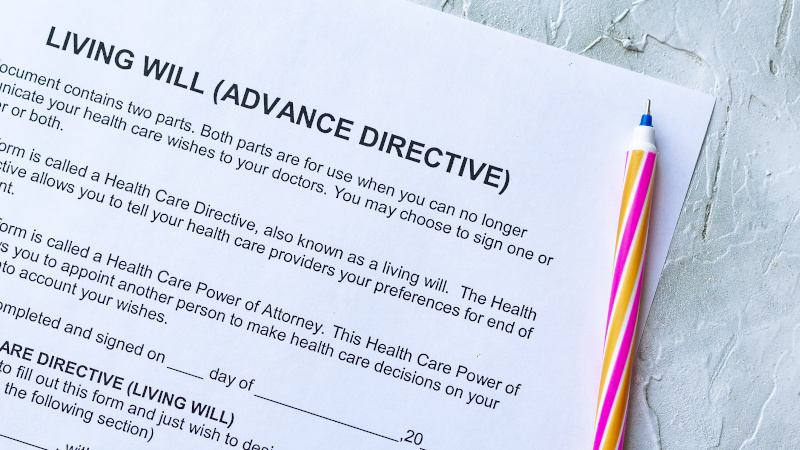If you have ever gone to the emergency room, you may have been asked if you have a current living will but are not sure what the term even means. Healthcare directive and advance directive are other names for the same legal document that describes a person’s wishes for end-of-life medical care. Unlike the type of will are familiar with, this document is no longer in effect after death and doesn’t designate where a person’s possessions will go. Without a living will and in the event your loved one becomes unable to communicate their wishes, you may be left to guess what they would want to have done in terms of medical treatment and could even end up in a dispute with doctors or family members.

A living will must meet state requirements regarding notarization or witnesses to be valid and can be revoked at any time. Several things that a living will may share information about are: DNR (Do Not Resuscitate) order, use of a feeding tube or ventilator, pain medications, specific instructions about a diagnosed illness, organ and tissue donation, and medical power of attorney, which designates a person to act as an agent to make medical decisions for you if you are incapacitated.
It is important to have a living will written as soon as possible, not only to have your wishes granted in the case that you are unable to communicate, but to spare your family members the agony of trying to make those choices for you. If you feel that having a living will could be a benefit to you and your family, please don’t hesitate to give us a call at Bennett Guthrie PLLC today.

